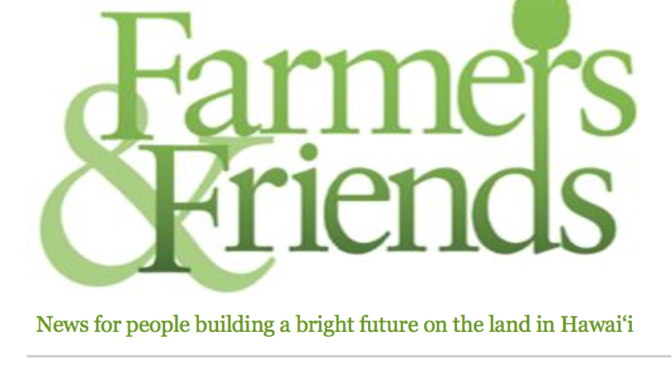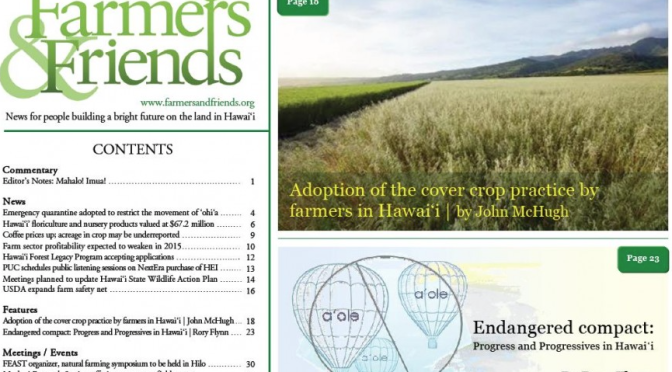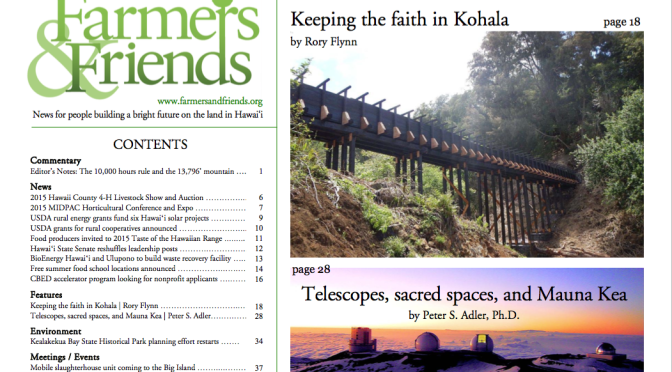Have a look at the new Farmers & Friends magazine. Its tagline is always “Agriculture, natural resources, energy, livelihoods, markets, opportunities and civil society in Hawai‘i.” That pretty much covers everything.
Editor Rory Flynn’s column this issue is called “Our Ketchup Bottle Problem.” It’s about Hawai‘i’s outmigration, and it starts:
Not so long ago, ketchup was packaged in clear glass bottles. You could always tell how much ketchup was left in the bottle and that came in handy, especially at restaurants and diners. Customer and waitress alike knew when it was time to bring out a fresh ketchup bottle.
Then ketchup makers switched to squat plastic bottles and, in lieu of visible ketchup, they colored the plastic bottles red. Now you have to give the plastic bottle a squeeze or feel its heft to determine if there‘s any ketchup inside. That pretty much sums up Hawai‘i‘s shaky grasp of population and economic growth these days….
This month’s feature stories include “Study reveals the changing face of agriculture in Hawai‘i,” about the 100-page State Agricultural Land Use Baseline 2015 report. From the article:
The study team was led by Jeff Melrose, a land use planner and a seasoned observer of Hawai‘i‘s agricultural landscape.
Melrose‘s team used a combination of satellite imagery, related geospatial datasets, and on-site farm interviews to produce a new digital GIS layer showing where commercial agricultural crops are grown throughout the State of Hawai‘i. The new baseline dataset updates Hawai‘i‘s previous Agricultural Land Use Map (ALUM, 1980) produced 35 years ago.
Other articles include “Thoughts on biotechnology,” “Algae + papaya = biofuel,” by Jan Suszkiw,” and “Growing up with Mort, Mike and Elaine.”
That last one is about the comedians Mort Sahl, Mike Nichols and Elaine May, by the way. Fun stuff.
It’s a great issue and I highly recommend having a look. Here’s a link.



